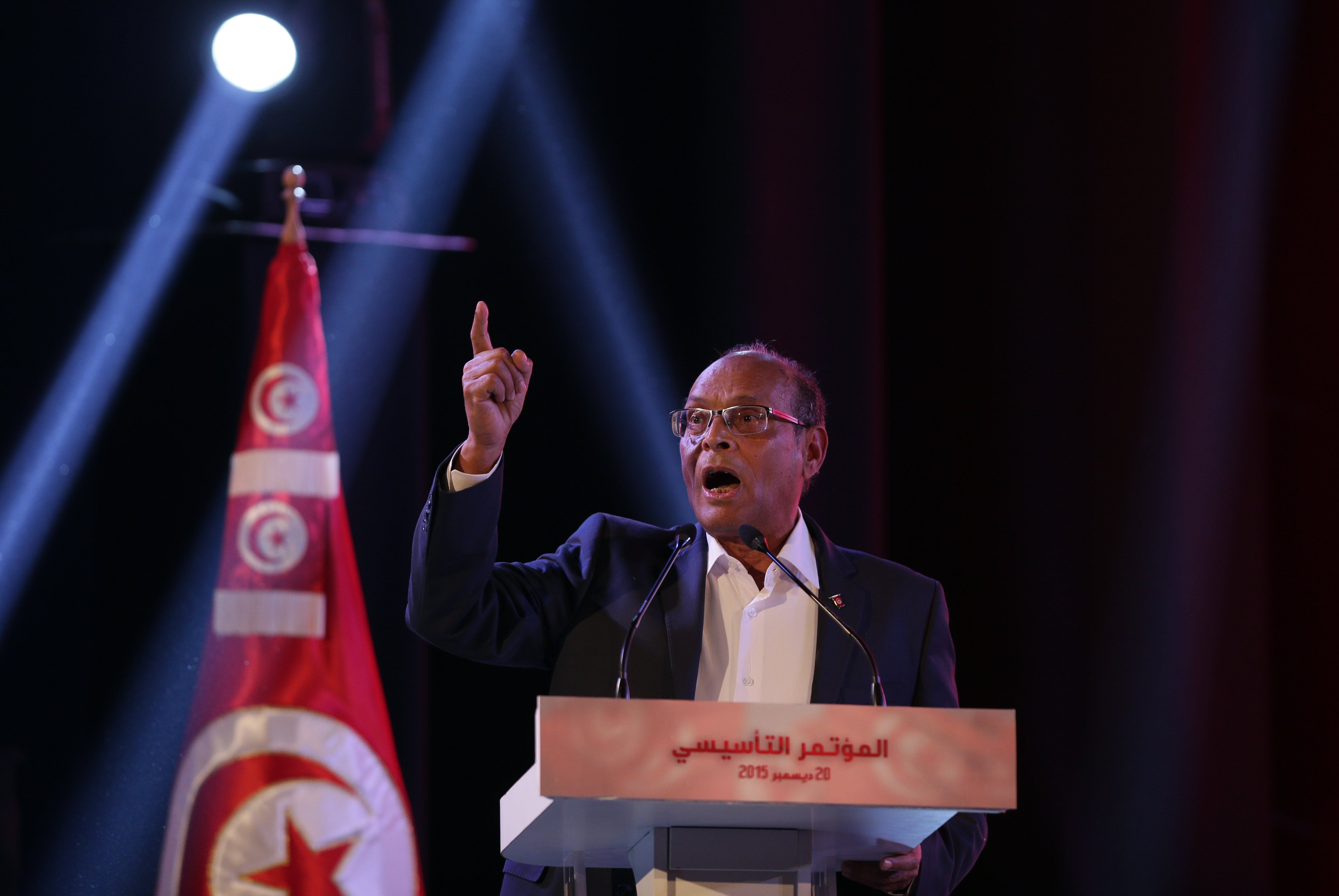Tunisia’s former president Marzouki sentenced to prison in absentia
Moncef Marzouki criticised current leader Kais Saied and called for protests against him

Your support helps us to tell the story
From reproductive rights to climate change to Big Tech, The Independent is on the ground when the story is developing. Whether it's investigating the financials of Elon Musk's pro-Trump PAC or producing our latest documentary, 'The A Word', which shines a light on the American women fighting for reproductive rights, we know how important it is to parse out the facts from the messaging.
At such a critical moment in US history, we need reporters on the ground. Your donation allows us to keep sending journalists to speak to both sides of the story.
The Independent is trusted by Americans across the entire political spectrum. And unlike many other quality news outlets, we choose not to lock Americans out of our reporting and analysis with paywalls. We believe quality journalism should be available to everyone, paid for by those who can afford it.
Your support makes all the difference.A Tunisian court has sentenced former president Moncef Marzouki in absentia to four years in prison for "assaulting the external security of the state”, after he criticised current leader Kais Saied and called for protests.
In a statement to Al Jazeera, Mr Marzouki rejected the court’s ruling as illegal, saying it was “issued by an illegitimate president who overturned the constitution”. Nevertheless, the former president said he would not be contesting the ruling.
Mr Marzouki, who lives in Paris, has labelled Mr Saied as a dictator and described the president’s dismissal of the prime minister and suspension of parliament in July as a coup.
Over the subsequent months, those measures, initially phrased as temporary, were extended. In September, Mr Saied announced that he would waive large sections of the constitution, maintain parliament’s shuttering, and continue to rule by decree.
Mr Saied has rejected accusations that his actions amounted to a coup and said he acted to end protracted political paralysis. He has said a referendum will be held next year on a new constitution followed by parliamentary elections.
In recent months, Mr Marzouki has emerged as a vocal opponent of Mr Saied and what many critics regard as his increasingly authoritarian behaviour.
In October, two months or so after Mr Saied’s seizure of power, Mr Marzouki had his diplomatic passport withdrawn after he used an address at a Paris rally to call upon the French government to halt support for "the dictatorial regime in Tunisia”.
Last month, Tunisia issued an international arrest notice for Mr Marzouki on accusations that he undermined the North African country’s security. But Mr Marzouki has maintained his campaign against the president from overseas and urged the Tunisian public to protest against him.
Although Mr Marzouki has some support overseas, his popularity at home is limited.
He came to power after the 2010-2011 Tunisian uprising that overthrew an autocratic leader and unleashed the Arab Spring, and left office in 2014. In the 2019 election, where he stood against Mr Saied, he gained just under 3 per cent of the overall vote share.
In contrast, according to Tunisia’s notoriously shaky polls, Mr Saied is still backed by much of the country, despite recent surveys showing his support to be waning as winter begins to bite and much needed economic reform remains a distant prospect.
Irrespective of the political arguments, Tunisia remains a relatively poor country with daily hardship a fact of life for large swathes of the population, a situation that has only grown worse since the revolution and one that now underpins much of the backing for Mr Saied’s anti-corruption agenda.
Mr Saied, previously a professor of constitutional law, has proved no stranger to relying upon Tunisia’s courts to enact his will.
In recent weeks, he has shown his frustration over delays in the judicial investigation into Tunisia’s leading parties, including its two principal ones, Qalb Tounes and the self styled ‘moderate Islamists’ Ennahda, over allegations of having received foreign funding, which is illegal in Tunisia.


Join our commenting forum
Join thought-provoking conversations, follow other Independent readers and see their replies
Comments